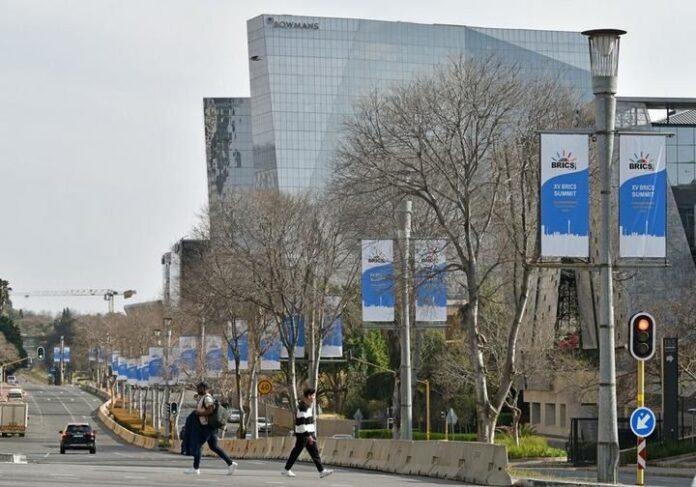Xinhua
BEIJING : Chinese President Xi Jinping will attend the 15th BRICS Summit in Johannesburg, South Africa, and pay a state visit to South Africa from Aug. 21 to 24.
Ahead of his trip, Xi replied to a letter from the faculty and students of the Confucius Institute at Durban University of Technology in South Africa, encouraging them to learn the Chinese language well and contribute to carrying forward the China-South Africa friendship and promoting friendly cooperation between the two countries.
In his letter, Xi said that he witnessed the establishment of the Confucius Institute 10 years ago and was pleased to see that, through the joint efforts of both sides, the educational and cultural exchanges between the two countries have yielded fruitful results.
The interaction shows the great importance that Xi attaches to promoting cultural and people-to-people exchanges among BRICS countries, namely Brazil, Russia, India, China and South Africa.
In his speech at the plenary session of the BRICS Xiamen Summit in 2017, Xi devoted one section to expounding on how he views the cultural and people-to-people exchanges.
Citing an ancient Chinese saying, “amity between the people holds the key to sound state-to-state relations,” Xi said enhancing the exchanges among peoples of BRICS countries and seeing the spirit of partnership embraced by all the people in these countries is a worthy cause that deserves enduring commitment.
“A job well done in this regard will keep BRICS cooperation vibrant,” he stressed.
Over the years, Xi has personally supported the efforts to boost cultural and people-to-people exchanges among BRICS countries.
Xi has shared stories in this regard in speeches delivered during trips to the other four BRICS countries. He lauded Carlos Tavares, a Brazilian expert on China, for enabling more people to understand China through his books, articles and speeches. In a speech delivered during a trip to India, Xi also cited verses by Indian poet Rabindranath Tagore that had inspired him.
Among Xi’s numerous interactions with people from these countries was a congratulatory message he sent in 2017 to celebrate the inaugural semester of Shenzhen MSU-BIT University, the first joint Sino-Russian university. He encouraged education officials and teachers from both countries to contribute to Sino-Russian educational cooperation and bilateral friendship.
Thanks to China’s active participation and vigorous promotion, BRICS cooperation has transitioned from a framework driven by the “two wheels” of politics and economy to the “triple pillars” of political and security cooperation, economic and financial cooperation, as well as cultural and people-to-people exchanges.
In recent years, cultural and people-to-people exchanges have notably gained momentum, and the activities of such exchanges are taking place regularly and have been institutionalized.
There has been a wide range of activities, from the BRICS media forums, film festivals, and cultural festivals, to women’s innovation contests, and technical and vocational education programs. This rich variety demonstrates that BRICS countries are committed to creating a broad landscape for cross-regional and cross-cultural exchanges.
They have not only accelerated the advancement of the BRICS cooperation mechanism but also presented a “BRICS model” for fostering inclusiveness and mutual learning among different civilizations.



